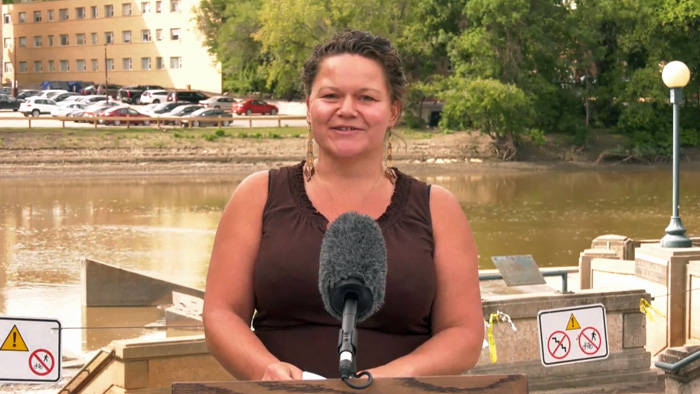The Seine Rat Roseau Watershed District in southeast Manitoba is part of a $5.6 million funding program by the province to ensure the health and sustainability of the province’s watersheds for future generations.
The Manitoba Habitat Heritage Corporation has selected 20 new conservation projects that will receive more than $5.6 million, building on the Manitoba government’s commitment to create a legacy of climate-change adaptation and resilience.
“Watershed management is an important part of our Made-in-Manitoba Climate and Green Plan,” said Premier Brian Pallister. “Local expertise, the commitment of landowners and the support of our partners will help ensure these projects protect our water quality, sustainably manage our natural resources and leave a sustainable legacy for all Manitobans to enjoy.”
These newly approved projects resulted from a call for proposals released in January, focused on water and watershed management. Funding is being provided through the Growing Outcomes in Watersheds (GROW) Trust and the Conservation Trust.
Through GROW, watershed districts in Manitoba will deliver 16 projects that improve resilience to the effects of climate change. Landowners will work with watershed districts and receive capital costs or annual payments to support new conservation projects. These include:
- $750,000 to the Seine Rat Roseau Watershed District in southeast Manitoba to support projects that reduce peak flows during floods, retain water during dry periods and capture nutrients in identified ‘hotspot’ areas that would otherwise end up in Lake Winnipeg;
- $440,000 for the Souris River Watershed District projects to reduce peak water flows, conserve at-risk shallow wetlands, improve soil health, conserve wildlife habitat and sequester carbon;
- $500,000 for the Inter-Mountain Watershed District, located east of the Riding and Duck mountains, to address flooding and severe water erosion that occurs along the edge of this region and the Manitoba escarpment; and
- $250,000 to the East Interlake Watershed District, on the west shore of Lake Winnipeg, to focus on wetland and riparian area enhancement projects that reduce water flow and capture nutrients before they can enter Lake Winnipeg.
The Conservation Trust will also provide funding to four non-profit organizations that submitted watershed-based proposals. Examples of approved projects include:
- $150,000 for the Centre for Indigenous Environmental Resources to work within the Collaborative Leadership Initiative, involving Indigenous and municipal leaders to deliver wetland restoration projects and demonstrate water quality trading as a nutrient-reduction tool in the Lake Winnipeg basin; and
- $50,000 for Ducks Unlimited Canada to improve watershed resilience by restoring wetlands and other natural habitats in the prairie pothole landscape of southwest Manitoba.
“Revenues from the trusts are now supporting new watershed conservation activities that also will help Manitobans adapt to the impacts of climate change,” said Tim Sopuck, chief executive officer, Manitoba Habitat Heritage Corporation.
These GROW and Conservation Trust projects will also leverage more than $9 million in matching funds, the premier noted.
The Conservation Trust was established in 2018 with a $102 million contribution to The Winnipeg Foundation to generate annual revenues for conservation projects in perpetuity. It is managed by the foundation, with projects approved, tracked and evaluated by the Manitoba Habitat Heritage Corporation. Earlier this year, 23 projects received $1.8 million in funding through the trust. For more information, visit mhhc.mb.ca.
In 2019, a $52-million endowment fund established GROW as a made-in-Manitoba approach to deliver ecological goods and services, with a focus on watershed health, management and resiliency. In last fall’s speech from the throne, the province also committed to investing another $50 million in a Wetlands GROW Trust to support landowners who wish to conserve temporary wetlands not protected by regulation.




